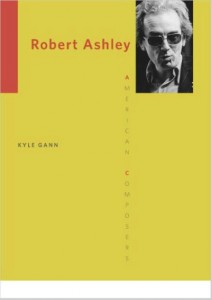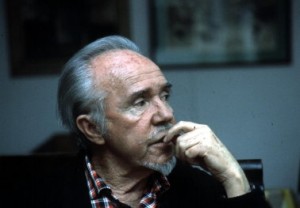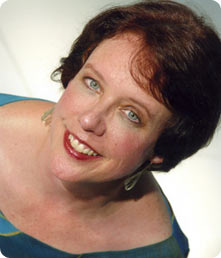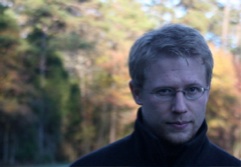For reasons not yet clear to me, the Oxford University Press blog has been doing a series of articles about Mars, and they asked me to write an entry on Mars and music, from an astrological point of view, which is now up. They are plotting some major announcement about Mars, and apparently I am one of the few musicologist-composer-writer-astrologers around since the death of Dane Rudhyar. I almost declined, but then reflected that Uranus is trining my ascendent, which suggests that benefits may come my way from totally out-of-left-field sources, so thought I’d better grasp the opportunity. Who knew that the Grove Dictionary of Music people needed a staff astrologer?
Of the Making of Books There Is No End
 A single copy of my new book Robert Ashley has just arrived in the mail, inexplicably delayed these last few weeks but just as welcome now. Amazon is still giving the official release date as Dec.
A single copy of my new book Robert Ashley has just arrived in the mail, inexplicably delayed these last few weeks but just as welcome now. Amazon is still giving the official release date as Dec. 16 10, so perhaps there’s time to get it for Christmas. A few weeks ago I put what are, for now, the finishing touches on my Robert Ashley web site of musical examples, with charts and transcriptions from six of the operas, the piano sonata, and Outcome Inevitable. While musical examples in the book would have been nice, these have the advantage that after looking at them, you can in some cases listen to the passages described. Meanwhile, Yale University Press has accepted my next book Essays After a Sonata: Charles Ives’s Concord, to appear in 2015, the centenary of the year Ives claimed the sonata was completed.
Gearing Up for the Minimalists Again
From the Society for Minimalist Music website, here’s the invitation for the Fourth International Conference on Music and Minimalism, Long Beach, CA, 3-6 October 2013:
You are kindly invited to submit proposals for the Fourth International Conference on Music and Minimalism, jointly hosted by UCLA and the California State University, Long Beach on the campus of CSULB in Long Beach, CA, 3-6 October 2013.
All scholars interested in music and minimalism are invited to submit paper proposals. The conference welcomes all papers concerning minimalist and post-minimalist music as well as the many subsequent styles they inspired, and is committed to the broadest methodological scope, including analytical, historical, cultural, philosophical, composer-centric, and performance-oriented presentations. In honor of the conference’s West Coast location, the organizers would especially like to encourage papers (or session proposals) on the theme of “Minimalism and the Left (Coast),†including such topics as:
• California minimalism (composers, labels, scenes, trends, institutions like the SF Tape Music Center, Cold Blue Recordings, etc.)
• Minimalism and the Pacific Rim (Japan, China, East Asia)
• Minimalism and Hollywood
• Countercultural minimalism (minimalism, popular music, altered consciousness)
• Minimalism and leftist (or rightist) politics (the 1960s and after)The Society is also interested, as always, in new research on the core minimalist, post-minimalist, and “totalist†repertories; engagement with the work of lesser-known composers, especially from outside the USA, the United Kingdom, and Europe; and position papers on the larger implications of musical minimalism in contemporary world culture:
• The minimalist and post-minimalist “core†repertoire (Young, Reich, Riley, Glass, Adams, etc.)
• Minimalism outside the USA (Louis Andriessen, Simeon ten Holt, Gavin Bryars, Hans Otte, Eliane Radigue, Karel Goeyvaerts, Zoltan Jeney, Steve Martland, Kevin Volans, Jo Kondo, etc.)
• Global minimalism and world music (minimalism in East and South Asia, Australasia, Africa, and Latin America; the influence of these and other non-Western musics on minimalist composers in the West)
• Crucial but less public figures in the minimalist story: William Duckworth, Tony Conrad, Phil Niblock, Jon Gibson, Rhys Chatham, David Borden, Glenn Branca, Julius Eastman, Terry Jennings, John Luther Adams, Gavin Bryars, Rick Cox, Michael Jon Fink, Jim Fox, Peter Garland, Daniel Lentz, Ingram Marshall, Read Miller, Larry Polansky, David Rosenboom, Phillip Schroeder, Chas Smith, etc., etc.
• Minimalism, opera, new music theater (Robert Wilson, George Coates, Mikel Rouse, Paul Dresher, Rinde Eckert, etc.) and dance (Anna Halprin, Lucinda Childs, Meredith Monk, etc.)
• The significance of minimalist and post-minimalist music as cultural practice
• Minimalism, space, ecology, the environment (ambient music, John Luther Adams, deep listening, etc.)
• Minimalism, sexuality, and gender (female composers [Monk, Oliveros, Speech, Lockwood, Radigue, Ustvolskaya]; repetition, cyclic process, and gender; etc.)
• Aesthetics/listening/analysis: discussions of the particular ways in which minimalism invites listening attitudes and their impact on music analysis
• Minimalism, post-minimalism and their influence on contemporary music composition (see lecture recitals, below)
• The performance practice of minimalism and post-minimalism (see lecture recitals below)Contributions are welcomed in the form of individual papers (20 minutes). Abstracts containing a maximum of 400 words should be sent as email attachments, by February 1, 2013, to LongBeach2013 at minimalismsociety.org. The conference is also happy to present lecture-recitals, including the possibility for composers and/or performers to present their own minimalism-related work. Those considering a proposal for a lecture-recital (or any other type of non-traditional session, paper, or event, such as a listening environment or poster session) are strongly encouraged to contact Robert Fink (rfink at ucla.edu) and Carolyn Bremer (carolyn.bremer at csulb.edu) as soon as possible in order to discuss their plans informally, prior to submitting a formal proposal.
More information will be posted on the conference website: http://minimalismsociety.org/
Gannian Homage to Ives, for Orchestra
A recording of my 2011 orchestra piece Serenity Meditation has arrived, courtesy of the Bowling Green State University New Music Festival, and conducted by J.J. Pearse. The piece, curated for this event by John Luther Adams, is based on three Ives songs, mostly “Serenity” and to a smaller extent “Sunrise” and “General William Booth Enters into Heaven.” It’s dedicated to Neely Bruce, who commissioned the keynote address in which I mentioned those three songs as examples of Ivesian stasis. I’ve had so little experience with orchestras that it’s still a thrilling shock to hear an orchestra play something and realize I wrote it. I wish the microphone had been a little closer to the celesta, which plays a major role, but the performance is quite nice.
November While It’s Still November
When I moved my web site I didn’t re-upload the four-plus-hour recording Sarah Cahill and I made in Kansas City of Dennis Johnson’s minimalist piano classic November. Several people have asked me to reinstall it and I keep forgetting, but it’s up here now. Andy Lee is recording the piece for the Irritable Hedgehog label, so there will be an excellent commercial studio recording out soon. I’ll let you know.
Everybody’s a Critic
“I might end up never firing the pistol. Contrary to Chekhov’s principle.”
“That’s fine, too,” Tamaru said. “Nothing could be better than not firing it. We’re drawing close to the end of the twentieth century. Things are different from back in Chekhov’s time. No more horse-drawn carriages, no more women in corsets. Somehow the world survived the Nazis, the atomic bomb, and modern music.”– Haruki Murakami, 1Q84, p. 1108
And I started reading the book because it mentioned Janacek’s Sinfonietta in the second sentence.
The Schumann of Postclassicism
Since his memorial service I’ve been desperately longing to hear William Duckworth’s Simple Songs about Sex and War, but I couldn’t find my old tape of it. (There’s a commercial CD, but the performance is weird and too disappointing to listen to.) Finally I ran across an mp3 on a hard drive – he and Nora must have given it to me last time I visited – and for all those similarly susceptible I post it here. Based on poems written for Bill by Hayden Carruth, it is the perfect postclassical song cycle, sung by the incomparable Barbara Noska (a Relache member when it was written) in a consummate postclassical vocal style, and with lovely synth accompaniment by John Dulik. Anybody who could write this deserved far more acclaim than the Pulitzer hacks.
Everybody Gets a 100th Birthday Sometime
 I am not much given to commemorating accidents of the calendar – anniversaries, centenaries, and so on – but given my history with the subject, I would be remiss, I think, if I failed to note that Conlon Nancarrow was born a hundred years ago today. Next weekend I will be in Berkeley for the Nancarrow at 100 conference/festival being presented by Other Minds. I have been interviewed frequently these last few months for radio programs and newspaper articles on Cage and Nancarrow, and I haven’t received many of the URLs at which those interviews ended up; perhaps you’ve heard or read a couple of them. Most recently composer/critic Andrew Ford interviewed me for an Australian radio program on Nancarrow that was supposed to air yesterday or today, whichever it is down there. I don’t really have much to say about Nancarrow that wasn’t in my book on him, but, as I did in London in April, I suppose I’ll play my edited versions of a few of the “unknown” rolls found unlabeled in his studio. He was – in case anyone missed the point – an amazing man.
I am not much given to commemorating accidents of the calendar – anniversaries, centenaries, and so on – but given my history with the subject, I would be remiss, I think, if I failed to note that Conlon Nancarrow was born a hundred years ago today. Next weekend I will be in Berkeley for the Nancarrow at 100 conference/festival being presented by Other Minds. I have been interviewed frequently these last few months for radio programs and newspaper articles on Cage and Nancarrow, and I haven’t received many of the URLs at which those interviews ended up; perhaps you’ve heard or read a couple of them. Most recently composer/critic Andrew Ford interviewed me for an Australian radio program on Nancarrow that was supposed to air yesterday or today, whichever it is down there. I don’t really have much to say about Nancarrow that wasn’t in my book on him, but, as I did in London in April, I suppose I’ll play my edited versions of a few of the “unknown” rolls found unlabeled in his studio. He was – in case anyone missed the point – an amazing man.
The silence of eternity…
Tomorrow afternoon will hear the world premiere of my chamber orchestra piece Serenity Meditation at the Bowling Green New Music Festival. Written in the summer of 2011, it’s based on Charles Ives’s song Serenity, which I’ve always wished was much longer. I’m grateful to John Luther Adams for curating it; he’s there now, and speaking this afternoon. I had hoped to go, but with Bill Duckworth dying, I’ve already missed more classes than I could afford this semester, and my course continuity is threatening to get out of control.
Misfits in the Corridors of Power
I let myself get talked into becoming chair of the arts division at my school this year. No musician had ever done it before. I get to teach one less course per semester for doing it, so in effect my position is 40 percent administrative for the next three years. This does not come naturally to me at all. What comes naturally to me is being the disgruntled rebel outsider, not the authority figure who’s charged with haranguing his colleagues to live up to their responsibilities. Problem is, that seems to be pretty much true of all the other artists as well, and one of us has to do it. One of us has to pretend to be what we all think of as a corporate suit for awhile. And I agreed to, because – though some of you won’t believe this – I’m a nice guy.
It’s an education, and not one I particularly wanted. I have about five meetings a week with administrators on the average. I can’t imagine anyone wanting to spend that much time in meetings. I’m fully involved in the inner workings of faculty governance. What I’m learning in detail, which I already knew to some extent, is how different artists are from the rest of our fellow professors. There are twelve professors on the faculty senate, three of us from the arts division. Usually these positions get filled by art historians and musicologists, who at least speak the lingo, but by luck of the draw this year, my two divisional colleagues are a jazz drummer and an experimental filmmaker; as a sometime musicologist, I’m by far the most academic of the three.
And we have meetings in which we three artists have no idea what our colleagues are talking about. We spend our time making microscopic changes to the faculty handbook. One day we must have spent twenty-something minutes trying to finesse some rule so that two or three specific faculty members would get access to evaluation files while two or three more very similar faculty members would not. The result we wanted seemed reasonable, but we couldn’t come up with the exact consistent wording that would effect it. It became apparent to us that our fellow faculty and administrators truly believe that if we could just get the faculty handbook worded correctly, that the college would run like clockwork, that no a posteriori judgement or intuition would ever become necessary. Of course, as artists, we reject this on principle. We know that we cannot come up with a verbalizable algorithm that will create a stunning, breathing work of art; why would we think that something as complex as a college could be fully encapsulated by a 100-page document? In our creative experience we know that achieving the result we want involves some measure of logic, but must invariably be completed by an irrational act of will. And so we have very little patience for the picayune distinctions that some of our friends in the sciences and social sciences seem to take vast delight in formulating. As the filmmaker keeps explaining to them on our behalf, “We think with a different side of the brain.”
Periodically we three artists get to meet with the administration alone, and our sense of relief is palpable. It’s our chance to explain why the arts division can’t operate like the rest of the college, why what works for them doesn’t work for us. (For instance, music is criticized for having too many part-time faculty, and told to consolidate positions. I always respond, “Find us someone who can teach voice, jazz saxophone, and double bass, and we’ll hire them!”) We are perennially the disgruntled, rebel, outsider division. And I’ve realized why: a person becomes a history professor because she has a moment in youth at which it suddenly occurs to her, “I’d like to be a history professor!” So she becomes one, with her eyes open, and her life is all of a piece. An artist becomes a professor because it occurs to him one day, “I want to be an artist!” – and then, many years later, a second realization follows: “Uh oh, I need a day job.” And so very few of us artists are there because it’s something we always wanted to do.
For instance, when we need outside tenure evaluators for a psychology professor, we call up a few psych profs at other schools and they agree to do it. When we need outside arts professors, we get turned down over and over again, because all those artists are spending every possible spare moment on their own art, and won’t give up that time to help an unknown colleague. In comparison to the science and social science people, we artist-professors live a somewhat dishonest life, because we reluctantly scrunch academia into the margins of our career wherever we have to. And yet, if we really decided to make academia our central concern, we would cease to be the wild, outside-the-box, creative types that our students need as models. The academic life is, by definition – life inside the box.
When John Knowles Paine convinced Harvard in 1876 to make him the first music professor in America, there was a general feeling on the Harvard faculty that music didn’t belong in a university curriculum. And I have frequently found myself thinking that those mortar-boarded Harvard dons were right – for music’s sake, not just to keep from trivializing the academy. I become more and more convinced that academia has poisoned the composition world, for instance, beyond any possibility of recovery. But, given the current structure of society, I can’t see what the reasonable alternative is.
Scenario at Last
In 2004 I completed a setting, for soprano and soundfile (tape? CD?) of a wild text by humorist S.J. Perelman called “Scenario.” I haven’t been able to find what year the text was first published, but I suppose Perelman (one of the funniest writers ever, and with an unparalleled genius for wordplay) had been slaving away in Hollywood, where he worked on the scripts for the early Marx Brothers movies. “Scenario” is a stream-of-consciousness satire of a scenario for a movie, a hysterical profusion of not only scene descriptions and actions but bits of dialogue, stage directions, director’s complaints, Hollywood gossip, and other miscellanea. Since, after immobility, stream-of-consciousness collage is my favorite type of musical continuity to compose, I couldn’t resist, and wrote it for the virtual orchestra of my dreams, with impossible tempo overlays and crossfades, occasional microtonality, and including banjo, guitar, harmonica, and a complete set of chromatic timpani. I hired my old friend composer Michael Maguire to realize the recording for me and started looking around for a soprano.
 Well, it took eight years to get one to take the bait, and not until Martha Herr came back into my life did I get to premiere the piece, which we did Friday evening to a rather ridiculously small audience (Bard being on fall break). The next day we went into the studio and recorded it, and now you can finally hear Scenario. I’ve always thought it was one of the best, and funniest, things I’ve ever done. Martha started out with the famous Creative Associates at SUNY Buffalo, and first sang my music soon after that period. She sang Babbitt’s Philomel on her college senior recital, with Babbitt in attendance, and was selected by Feldman to premiere his opera Neither, so I was honored to have her premiere Scenario as well. It’s a really difficult piece, 17 minutes with few rests, and dotted throughout with sudden shifts of tempo. She does a superb job, and I can’t tell you what a relief it is to hear, in the flesh, a piece I’ve been singing to myself for eight years. The crazy text is up here, and Perelman’s vocabulary is so arcane that, even with Martha’s excellent diction and a good recording, you probably can’t figure out all the words without reading it.
Well, it took eight years to get one to take the bait, and not until Martha Herr came back into my life did I get to premiere the piece, which we did Friday evening to a rather ridiculously small audience (Bard being on fall break). The next day we went into the studio and recorded it, and now you can finally hear Scenario. I’ve always thought it was one of the best, and funniest, things I’ve ever done. Martha started out with the famous Creative Associates at SUNY Buffalo, and first sang my music soon after that period. She sang Babbitt’s Philomel on her college senior recital, with Babbitt in attendance, and was selected by Feldman to premiere his opera Neither, so I was honored to have her premiere Scenario as well. It’s a really difficult piece, 17 minutes with few rests, and dotted throughout with sudden shifts of tempo. She does a superb job, and I can’t tell you what a relief it is to hear, in the flesh, a piece I’ve been singing to myself for eight years. The crazy text is up here, and Perelman’s vocabulary is so arcane that, even with Martha’s excellent diction and a good recording, you probably can’t figure out all the words without reading it.
I think of it as a 17-minute pocket opera for soprano and CD. Some will object to my use of the term, some to the with-CD format, some to the synthetic creation of orchestral textures, some to the constant intercutting, and many to many other things about it, but I hope a few will be able to hear it for what I consider it, a musical amplification of a wild and comically surreal text, in the intended same vein as Walton’s Facade and Virgil Thomson’s operas.
Bill’s Tunes
I’m remiss in not having let you know earlier that a tribute concert to Bill Duckworth is taking place tomorrow night (Tuesday) at Le Poisson Rouge in Manhattan, at 7:30 (doors open at 6:30). Neely Bruce, Lois Svard, Margaret Leng Tan, Tom Buckner, and others will perform his indelible music.
Some Somethings Echo More than Others
[UPDATED] It strikes me lately that there are basically two types of performances in a composer’s career, or at least in a half-assed composing career like mine. One is, you’re invited to an event, they offer to play a piece of yours, it gets one rehearsal the day before, maybe, and they nominally play it. The other is, a performer (in my case, Sarah Cahill, Lois Svard, Relache, Aron Kallay) chooses to tour with a piece of your music, and he/she/they is/are highly motivated to show the world what wonderful performers they are, and so of course they work their butts off and do a magnificent job, and the piece benefits from repetition in ways that no single performance could effect.
 I’m tired of the first category, but luckily I’m about to get a dose of the second, because Los Angeles pianist Aron Kallay, who specializes in microtonal MIDI keyboard, is starting a eastern-half-of-the-country tour this Friday night with some of my music under his arm, including the most recent piece I wrote for him, Echoes of Nothing. Here’s his schedule:
I’m tired of the first category, but luckily I’m about to get a dose of the second, because Los Angeles pianist Aron Kallay, who specializes in microtonal MIDI keyboard, is starting a eastern-half-of-the-country tour this Friday night with some of my music under his arm, including the most recent piece I wrote for him, Echoes of Nothing. Here’s his schedule:
September 28 – Chicago – Heaven Gallery
September 29 – Champaign, IL – SoDo Art Gallery
September 30 – Fishers, IN – Fishers Public Library
October 3 – Hartford, CT – Hartt School of Music
October 4 – Pittsburgh, PA – Carnegie Mellon University
October 5 – Annandale, NY – Bard College
October 6 – NY, NY – The Spectrum New Music Space
The Bard performance on October 5 (in Blum Hall, 8 PM) will include three works I wrote for him, plus a performance by soprano Martha Herr, an old friend of mine and an illustrious singer who premiered Feldman’s opera Neither. Martha is premiering a music theater piece for soprano and electronic background that I wrote seven years ago, called Scenario, based on a surreal S.J. Perelman text.
I’ve been looking forward to these premieres for a long time, and I finally have Aron’s lovely recording of Echoes of Nothing for you. Both movements based on the same tuning, a kind of microtonal, Clementi-ish two-movement sonata, an adagio and a rondo, so to speak:
